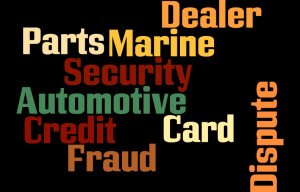Newly defined data element reduces reliance on primary account numbers when managing security requirements and delivering value-added services.
29 March 2016 – Global technical body EMVCo has released a bulletin updating the EMV® Payment Tokenisation Specification – Technical Framework to provide the payment community with a global, consistent framework to implement ‘Payment Account Reference’ (PAR). To be used by merchants, acquirers and payment processors, PAR can enhance security by limiting references to a cardholder’s primary account number (PAN) in the payment ecosystem.
Payment tokenisation is the process of replacing a PAN with a unique payment token that may be restricted in its usage, for example, with a specific device, merchant, transaction type or channel. Traditional PAN-based payments will continue to be used alongside EMV Payment Tokens. The introduction of PAR, which does not contain financially sensitive data, enables the payment acceptance community to link a cardholder’s payment token with their PAN transactions without needing to use their underlying card account number. This allows for a consolidated view of transactions on a payment account. This is also needed for security and regulatory reasons, such as risk analysis and anti-money laundering. It is also important for value-added services, as these often leverage historical transactional data to derive analytics and measurements to support customer programmes such as loyalty.
Mike Matan, current Chair of the EMVCo Executive Committee, comments: “Payment tokenisation enhances the underlying security of digital payments by limiting the risks associated with the compromise or unauthorised use of PANs. As well as increasing security, we want to ensure the payment acceptance community can continue to deliver associated payment processing and value-added services which are currently enabled by PAN. PAR addresses this by enabling all payment transactions – regardless of how they are initiated – to be processed in a consistent manner.”
The presence of PAR fulfils a fundamental need to link PAN-based and token-based transactions together. PAR enables the industry to move away from dependence on the PAN as the primary linkage. PAR data cannot be reverse-engineered to reveal the PAN or EMV Payment Token and cannot be used on its own to initiate a transaction such as authorisation, capture, clearing or chargeback. Users of PAR data are required to protect PAR data in accordance with national, regional or local laws and regulations.
“EMVCo recognises the need to continually adapt and advance the EMV payment infrastructure to support and promote user convenience without compromising security,” adds Jack Pan, EMVCo Board of Managers Chair. “Our work to establish a secure and scalable payment tokenisation ecosystem is no different. Since EMVCo launched its activity to focus on the development of a tokenisation specification, we have been working with industry stakeholders and EMVCo Associates to solicit feedback and determine appropriate updates to the framework, which will optimise the benefits of this technology. In addition to PAR, EMVCo has launched a Token Service Provider (TSP)
Registration Process, to promote transparency and interoperability of TSP entities. We look forward to continuing our work with the industry to manage and evolve this payment technology further.”
EMVCo – which is collectively owned by American Express, Discover, JCB, MasterCard, UnionPay and Visa – launched the EMV Payment Tokenisation Specification – Technical Framework v1.0 in March 2014. The PAR framework is designed to ensure global interoperability and support broad industry adoption. These latest updates are documented in the EMV Specification Bulletin No. 167, available to download without charge from the EMVCo website.
The specification bulletin accomplishes the following:
• Introduces PAR as an industry aligned data structure.
• Describes the presence of PAR in payment token and underlying PAN transactions.
• Defines PAR to be used as a consistent value for all payment tokens affiliated with an underlying PAN.
• Outlines how PAR can be used by acquirers, payment processors and merchants to link payment token transactions to those of the underlying PAN.
To join other industry stakeholders in contributing to EMVCo’s development of the tokenisation framework, become an EMVCo Associate.
– ENDS –
For further EMVCo media information please contact Sarah Jones / David Amos – Tel: +44 1943 468007 or email: sarah@iseepr.co.uk / david@iseepr.co.uk
Notes to Editors:
EMV® is a registered trademark in the U.S. and other countries and an unregistered trademark elsewhere. The EMV trademark is owned by EMVCo.
About EMVCo:
EMVCo is the global technical body that facilitates the worldwide interoperability and acceptance of secure payment transactions by managing and evolving the EMV Specifications and related testing processes. Adoption of EMV Specifications and associated approval and certification processes promotes a unified international payments framework, which supports an advancing range of payment methods, technologies and acceptance environments. The specifications are designed to be flexible and can be adapted regionally to meet national payment requirements and accommodate local regulations.
EMVCo is collectively owned by American Express, Discover, JCB, MasterCard, UnionPay and Visa, and focuses on the technical advancement of the EMV Specifications. To provide all payment stakeholders with a platform to engage in its strategic and technical direction, EMVCo operates an Associates Programme and encourages all interested parties to get involved.
Visit www.emvco.com for further information and join EMVCo on LinkedIn.

 Credit card fraud is still rampant in the US, even after US EMV liability shift convinced many merchants to purchase terminals to support chip cards. Marine, auto, and other high value parts dealers have long had a problem mitigating fraud risk with local and international parts.
Credit card fraud is still rampant in the US, even after US EMV liability shift convinced many merchants to purchase terminals to support chip cards. Marine, auto, and other high value parts dealers have long had a problem mitigating fraud risk with local and international parts.